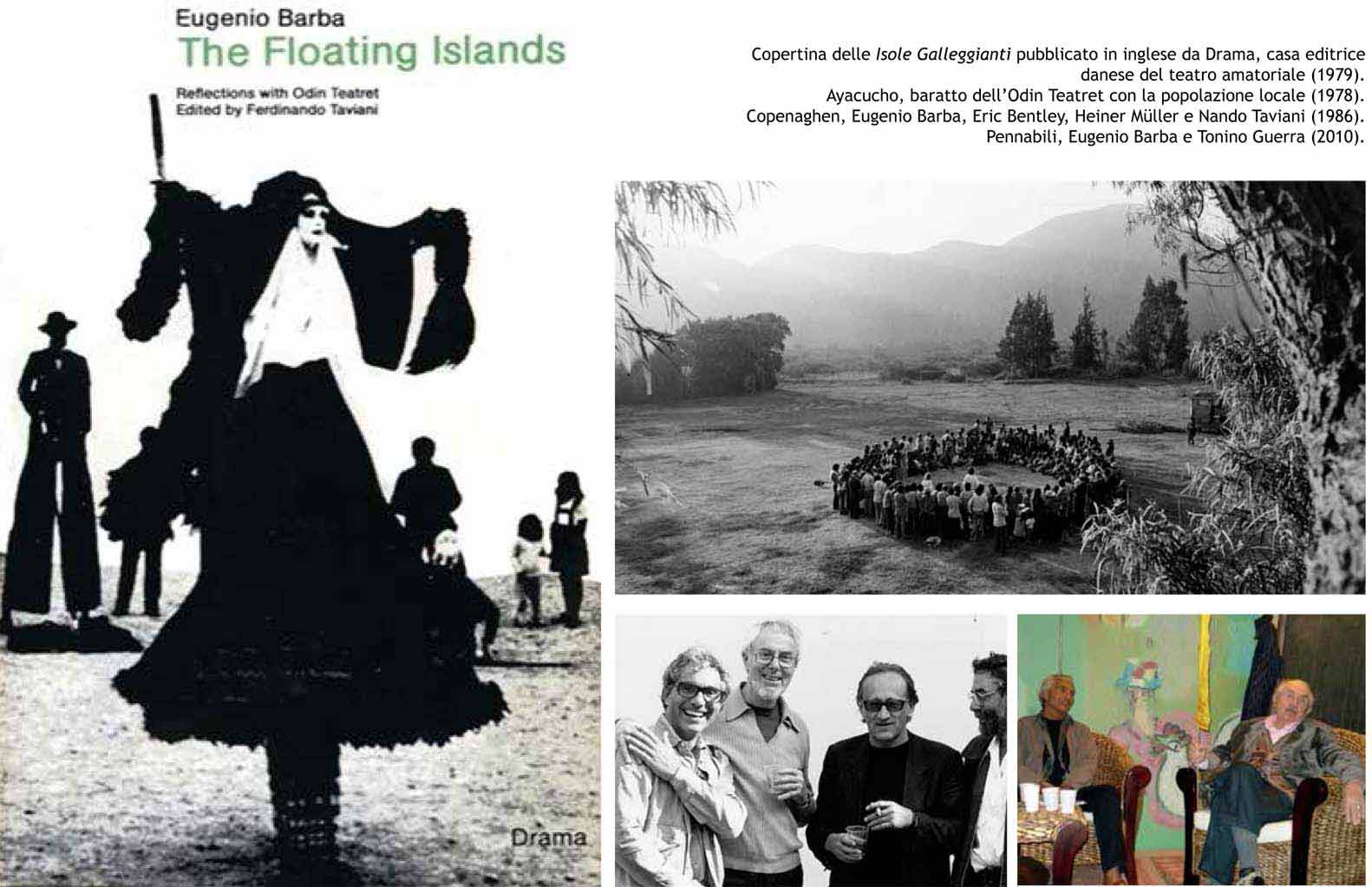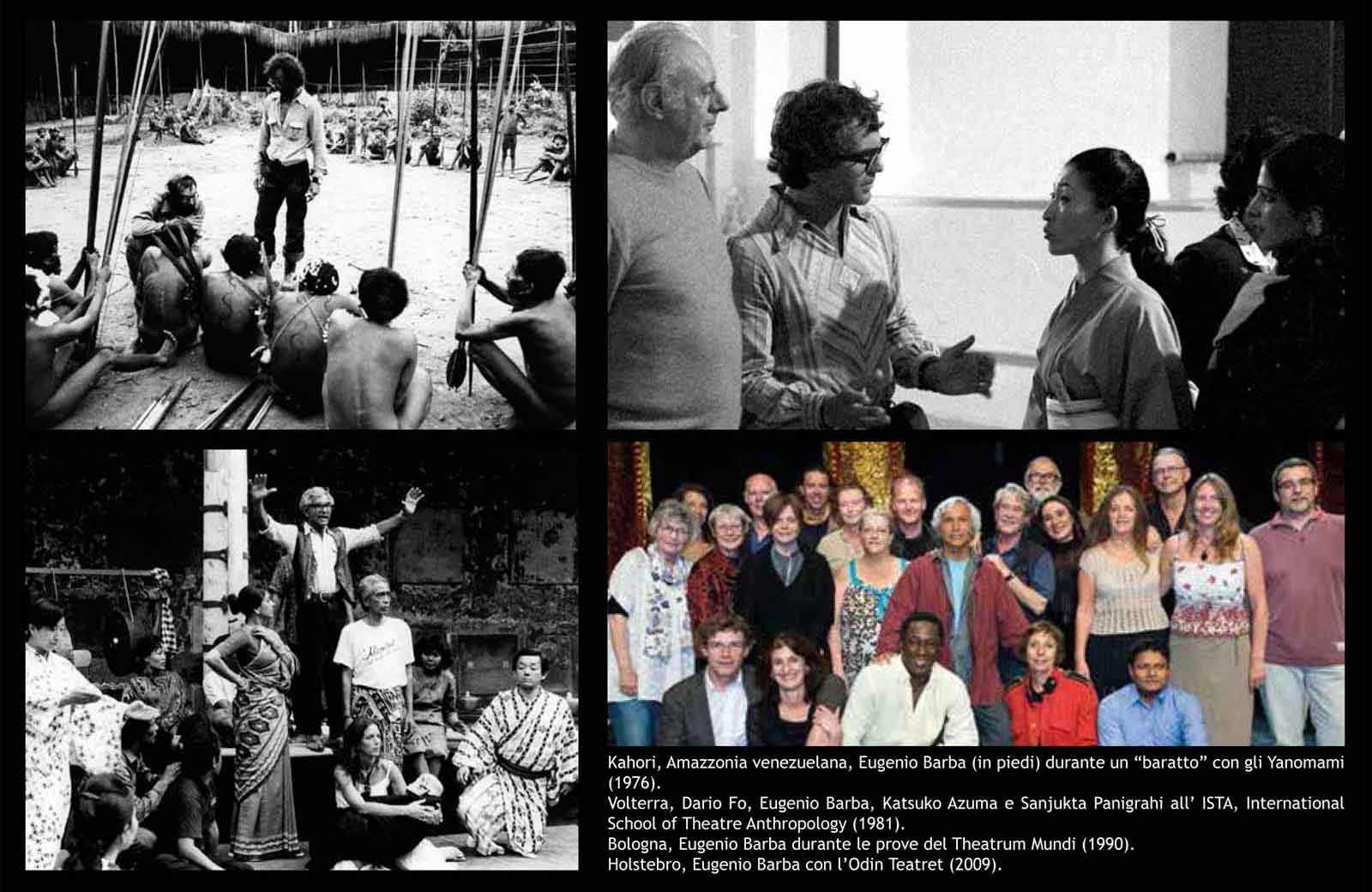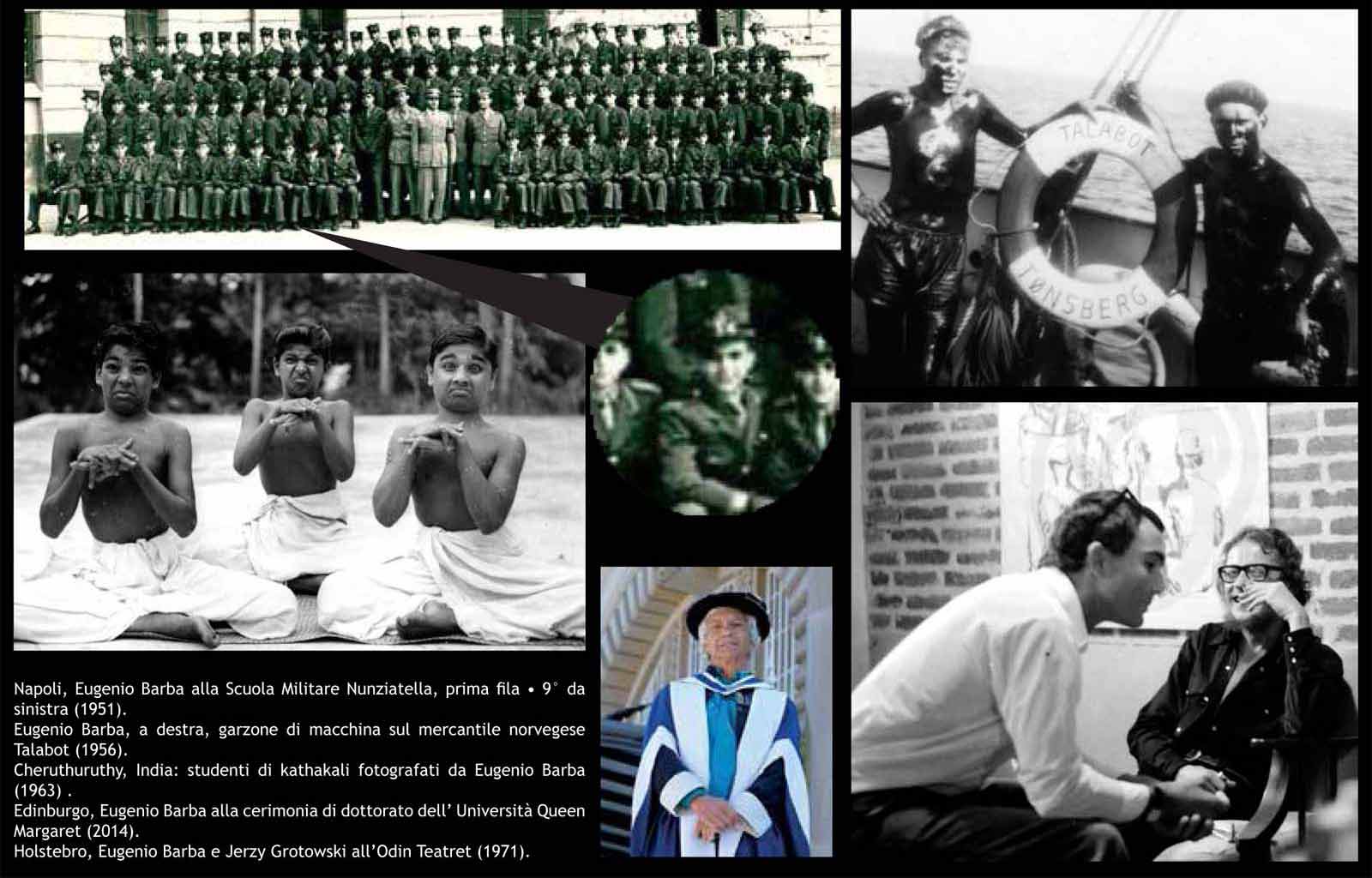Eugenio Barba
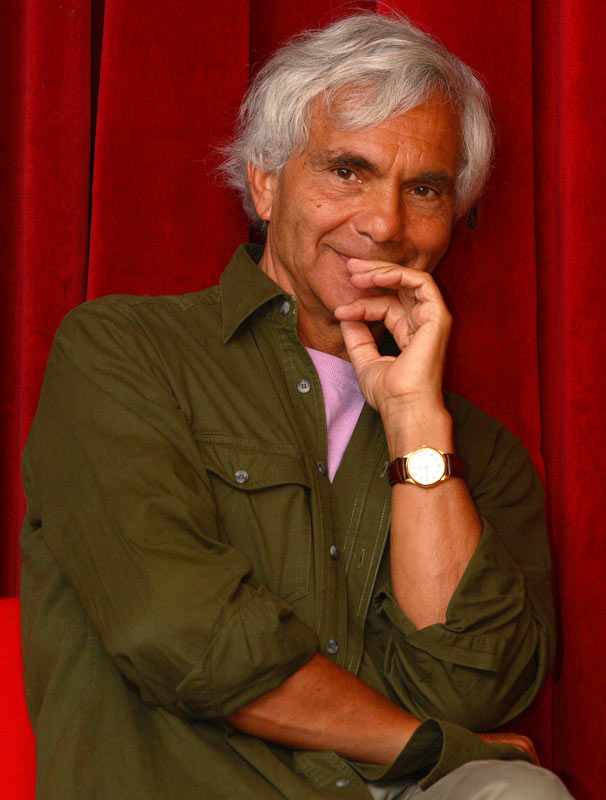
Eugenio Barba is one of the protagonists in the history of theatre of the second half of the twentieth century. His activity, which has been an international point of reference for over half a century, has spanned many fields: the artistic creation of performances, theoretical reflection, pedagogy and the transmission of experience, the preservation of historical memory, the scientific study of the actor/dancer’s technique, the use of theatre “outside the theatre” in social and crosscultural contexts throughout the world with the aim of activating relationships between different cultures and ethnic groups.
Eugenio Barba was born in Puglia (Italy), grew up in the village of Gallipoli and completed his high school education at the Nunziatella Military School in Naples.
In 1954, he emigrated to Norway where he worked as a tinsmith and a welder and then, for two years, as a sailor on a Norwegian freighter. Meanwhile, he studied at Oslo University where he graduated in French and Norwegian literature and history of religions.
In 1961, he received a scholarship to follow the course in directing at the State Theatre School in Warsaw, Poland.
He interrupted his studies after a year to join a small provincial experimental theatre in Opole directed by the young, and at that time unknown director, Jerzy Grotowski and the critic Ludwik Flaszen.
He remained there until May 1964, alternating the work as assistant director with travels throughout Europe to promote the activity of Grotowski who, in 1965, was the subject of his first book In Search of a Lost Theatre.
During this period he stayed five months in India where he became acquainted with kathakali, a traditional dance theatre almost unknown in the West, writing a longer essay about it.
October 1964 is a key date: Barba founded in Oslo Odin Teatret with some
young people who had been rejected by the State Theatre School.
Two years later, he moved with his group to Holstebro, Denmark, and here he started developing a theatre laboratory with pioneering modalities of production.
In addition to performances in a non-traditional space, the focus was on the actor’s learning (training) and the transmission of technical knowledge through workshops and didactic courses that Odin Teatret organised all over the world.
These experiences of alternative pedagogy, outside institutional schools, constituted an essential artistic and financial resource for the group.
These activities, together with a publishing house, sociological surveys of the local spectators, and the hosting of international performances, gave life to the Nordisk Teaterlaboratorium which, with the staff of Odin Teatret and the Theatrum Mundi intercultural ensemble, became a multilingual environment and a unique place without borders in the geography of contemporary theatre.
The collaborations and initiatives of Barba and his actors with theatres, universities, grassroot groups and prestigious institutions grew into numerous pedagogical, artistic and social initiatives in Holstebro and in various parts of the world, especially in South America.
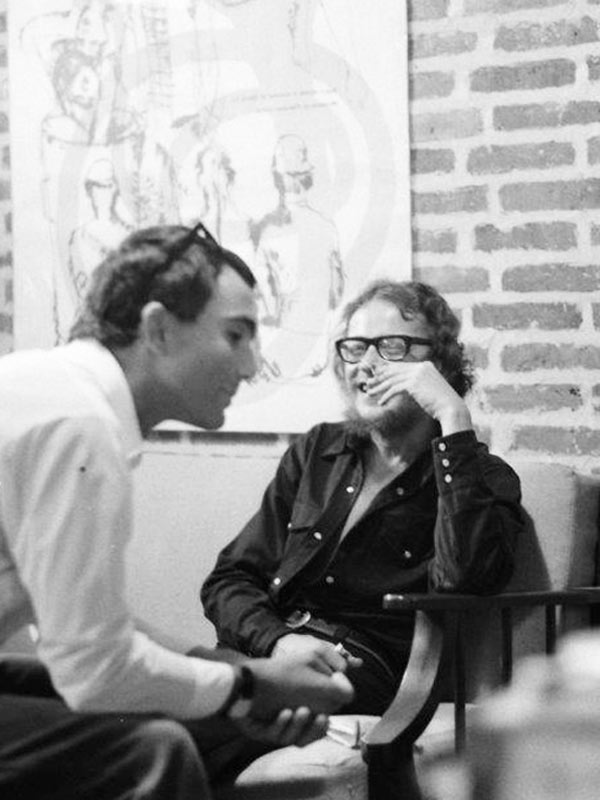
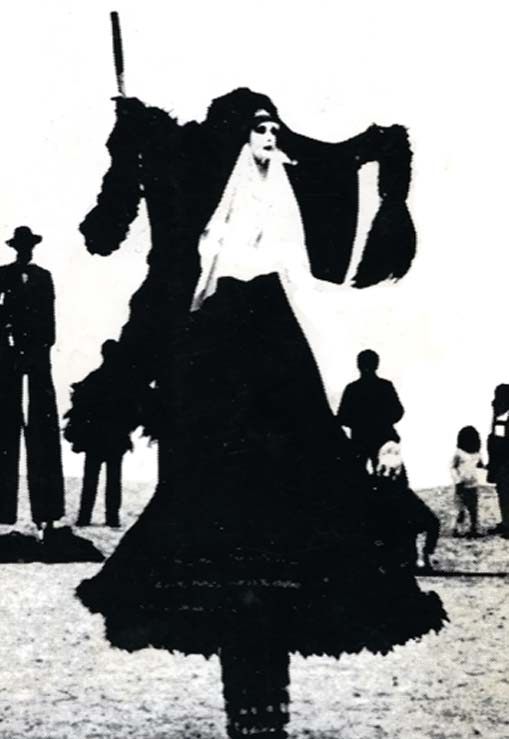
Eugenio Barba and Odin Teatret created 81 performances enacting them in theatre buildings and unconventional sites, taking them to the streets, squares, villages and communities “without theatre”.
The actor-spectator relationship became interference, interaction and reciprocity through the practice of the “barter”, an exchange of cultural expressions between the Odin actors and the populations of the different continents.
Their manifold experiences all over the world were transposed to their home in Denmark. Every three years, Barba and Odin Teatret involve dozens of associations, schools, cultural institutions, sports clubs, the military, the police, businesses and grassroots in the Holstebro Festuge (Festive Week) in an attempt to celebrate for nine days and nights the diversity and the resources of
the community’s many cultures.
This local and international activity took place in a period with a a
proliferation of theatre groups, which Barba defined as Third Theatre:
a new theatre culture, neither traditional nor avant-garde.
Like “floating islands”, these groups of artists, often self-taught, cultivated a professional but also a social and civil ethic, thus changing the cultural geography of the places in which they operate.
In 1976, Barba organised an encounter between European and Latin American groups based on an exchange of their work culture – the training – starting a tradition of “encounters” that still continues today.
For the occasion he wrote the text Third Theatre which acquired the value of a manifesto.
In 1979 he published The Floating Islands which was immediately translated into many languages. The book described the experiences of Odin Teatret and became a “battle cry” for many theatre groups.
1979 was another crucial year: Eugenio Barba founded ISTA, International School of Theatre Anthropology, an itinerant laboratory of comparative studies on the principles underlying the actor/dancer technique in different traditions and cultures.
This lively and dense field of study, which Barba defined as “theatre anthropology”, was one of the most fertile findings in the theatre of the second half of the twentieth century, an opportunity for research, scientific comparison and sharing, thanks to the contribution of artists, scholars and experts from different fields.
In 1990 Barba founded the University of Eurasian Theatre in collaboration with the University of Bologna. In 2002 he created the Centre for Theatre Laboratory Studies in collaboration with the University of Aarhus, Denmark.
Barba has published 25 books, numerous essays and articles translated into more than thirty languages. He is on the editorial board of international journals, including “TDR – The Drama Review”, “Performance Research”, “New Theatre Quarterly” and “Teatro e Storia”.
He founded two publishing houses, Odin Teatrets Forlag (1967) and Icarus Publishing Enterprise (2009) in collaboration with the Grotowski Institute (Poland) and TARF, Theatre Arts Researching the Foundation (Malta). He is the promoter and editor of two magazines: “Teatrets Teori og Teknikk” (1967) and “Journal of Theatre Anthropology” (2021).
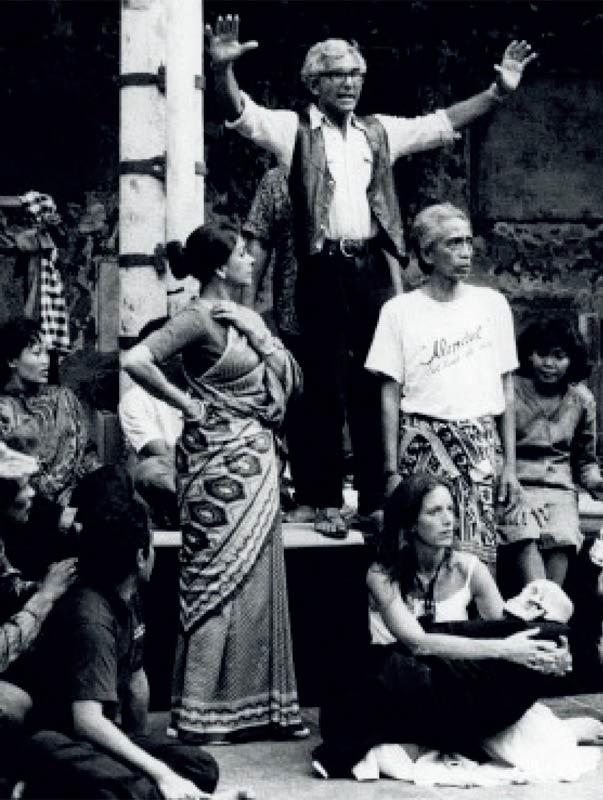
Barba has received numerous international awards. His artistic achievements and research into theatre anthropology have been recognised with honorary degrees and doctorates from the Universities of Aarhus, Ayacucho, Bologna, Havana, Warsaw, Plymouth, Hong Kong, Buenos Aires, Tallinn, Cluj-Napoca, Edinburgh, Shanghai and Peloponnese.
He was awarded the “Reconnaissance de Mérite Scientifique” by the University of Montreal, the Sonning Prize by the University of Copenhagen, the Luigi Pirandello International Prize, the Thalia Prize of the International Association of Theatre Critics (IATC), the Honorary Gloria Artis from Poland and the Medal of the City of Athens.
He is a Cavaliere of the Order of the Star of Italian Solidarity and Commendatore of the Order of Merit of the Italian Republic. Denmark bestowed on him the highest honours: the Danish Academy Award in 1976 and the Knight’s Cross of the Queen of Denmark in 2000.
In 2013 the Danish Directors’ Association gave him the Lifetime Achievement Award, and the Danish State an annuity for artistic merits towards the nation.
In 2020, together with actress Julia Varley, he established the Fondazione Barba Varley with the aim of supporting artists who work in disadvantaged conditions due to their political opinions or for racial, gender and social reasons.
